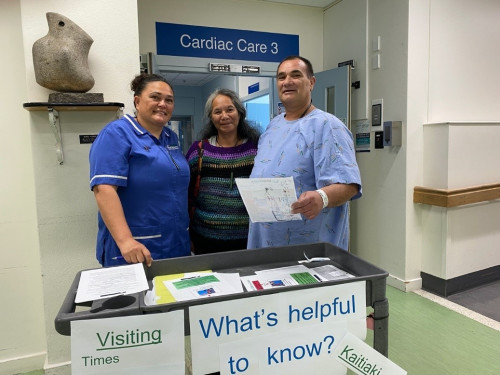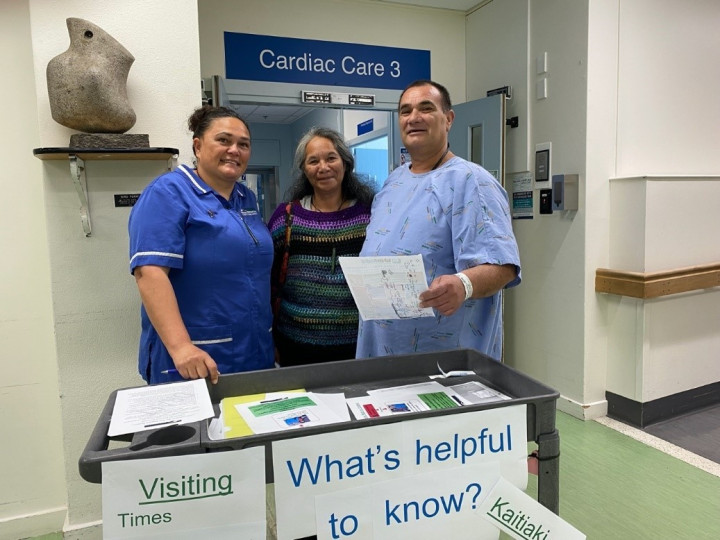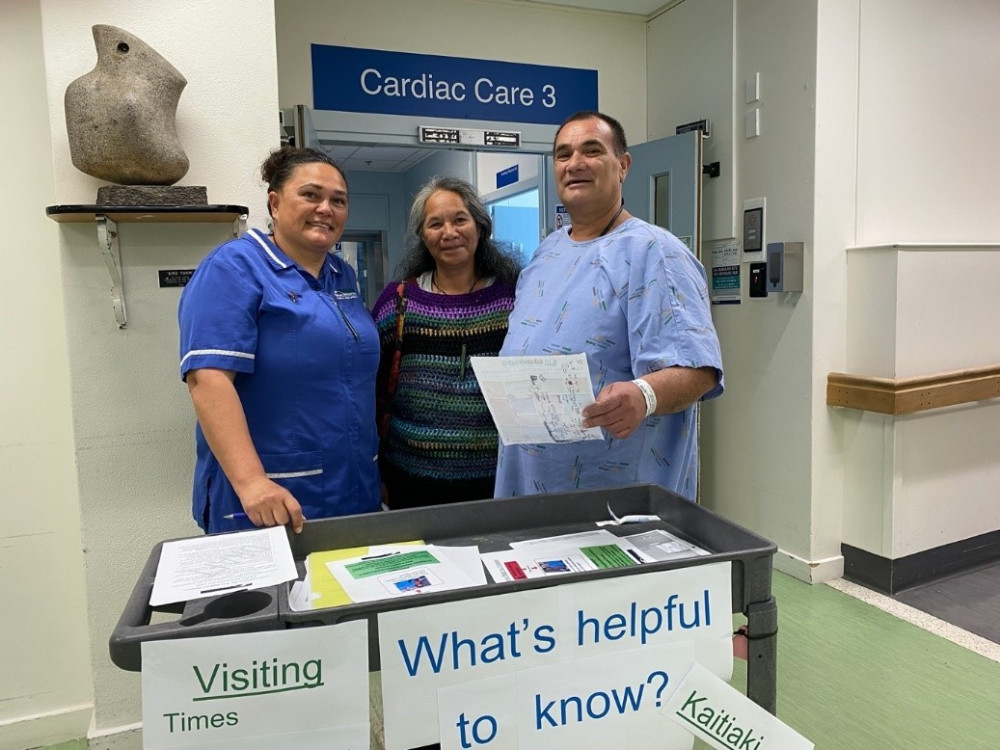A key support person can play an important role in patient care, helping to ensure their comfort, advocate on their behalf, and contribute to improved outcomes.
Waikato Clinical Nurse Specialist Adolescent and Young Adult Cancer, Ellyn Proffit has spent nearly two decades supporting young people through cancer diagnoses and says that having a whānau member or friend acting as a key support person can help improve outcomes throughout the treatment journey.
Ellyn is wanting to raise awareness so that patients and whānau understand that this is an option during their hospital stay and beyond.
A key support person is someone who has been identified by the patient to have at their side during their stay. They may be a relative, partner, friend or anyone the patient chooses.
They are not just a visitor but are someone chosen to play an active role in the patient’s care. They may participate in clinical conversations and family meetings, assist with essential care needs, support with decision-making, and help with the transition of care to the patient’s home.
Key support people were initially introduced to support adolescents and young adults going through cancer treatment, but Ellyn’s advocacy has helped expand the role and make the option available to more patients.
“It is clear how crucial it is to have whānau by the patient’s side, particularly during challenging times.”
Research shows that a key support person can help improve patient outcomes, enhance the patient and family experience, reduce the risk of medical errors, and lower the chances of unplanned readmissions. They work collaboratively with staff and their involvement helps clinical teams better understand the patient’s needs, while ensuring patients feel safer and more supported.
Ellyn encourages anyone being admitted to Waikato Hospital to let staff know if they require a key support person and make sure this is outlined in their care plan.
Ellyn has spent some time around the hospital, engaging with staff, visitors, patients and key support people about their experiences with the key support person role:



Clinical Nurse Specialist Adolescent and Young Adult Cancer, Ellyn Proffit with patient, Harry Ballantyne and key support person, Susan Ballantyne kōrero about the benefits of having a key support person.
Clinical Nurse Specialist Adolescent and Young Adult Cancer, Ellyn Proffit with patient, Harry Ballantyne and key support person, Susan Ballantyne kōrero about the benefits of having a key support person.
Harry’s journey with Susan as his key support person
When Harry was admitted to the hospital, having Susan as his key support person made all the difference.
“It was 20 times better with her there,” Harry says.
“She helped me avoid potential conflicts during a stressful time and made sure nothing got lost in translation, which was especially important as we are both Māori.”
Susan was an advocate throughout Harry’s care, ensuring his needs were met by asking for assistance and allowing Harry to rest. Her role went beyond emotional support as she ensured clear communication and a smooth care experience, ultimately helping Harry recover faster.
“Health is a big learning journey, but with Susan there, I could focus on getting better.”
Marion’s experience as a key support person
I found out about being a key support person from my daughter who works at the hospital and ended up supporting my cousin through her 12-week hospital stay as her key support person, keeping her company, calming her nerves and helping to advocate on her behalf.
As the key support person, you can keep track of the conversations with clinicians and help the patient understand detailed information. Occasionally the patients themselves can be too unwell to take it all in.
I was a reassuring and consistent presence that enabled my cousin to rest more, made sure she was eating and drinking well, and helped provide clarity for both staff and for other whānau and friends.
The staff were generally caring and very efficient. As a key support person, I could address some of my cousin’s needs without having to bother the staff. If you have a can-do attitude and are engaging with the staff, and not just the patient, it helps everyone have a positive experience.